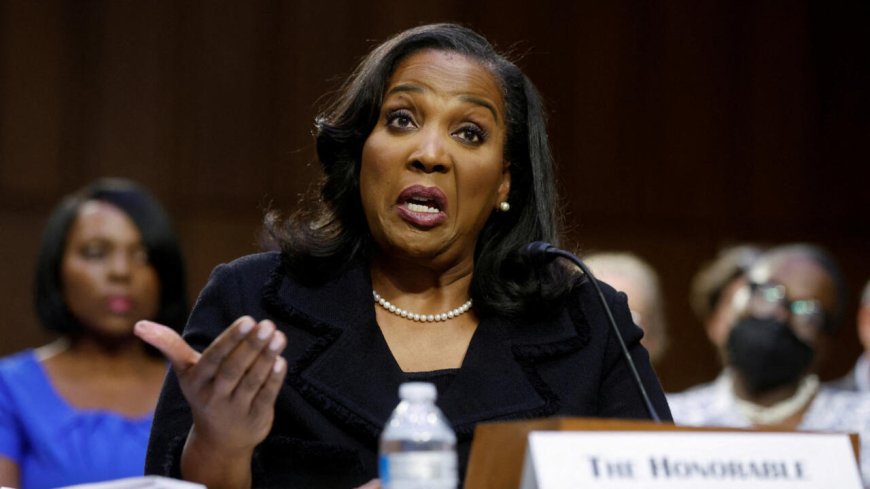Trump Fires Fed Governor Lisa Cook Amid Mortgage Fraud Allegations: Legal Fallout and Economic Implications
President Trump fires Federal Reserve Governor Lisa Cook amid mortgage fraud allegations, sparking legal challenges and market volatility. Explore the implications of this unprecedented move.

In an unprecedented move that has sent shockwaves through the financial and political landscapes, President Donald Trump announced the immediate dismissal of Federal Reserve Governor Lisa Cook on August 25, 2025. The termination, based on allegations of mortgage fraud dating back to 2021, has ignited a legal battle over presidential authority and raised concerns about the Federal Reserve's independence. This article delves into the details of the allegations, the legal ramifications, and the potential economic impact of this historic decision.
The Allegations
The controversy centers around accusations made by Federal Housing Finance Agency Director Bill Pulte, who claims that Cook misrepresented two properties as her primary residences to secure favorable mortgage terms. Specifically, Pulte alleges that Cook applied for loans in Michigan and Georgia, listing both homes as primary residences, a move that could constitute mortgage fraud under federal law.
Cook, appointed to the Federal Reserve Board by President Joe Biden in 2022, has vehemently denied the allegations. Her attorney, Abbe David Lowell, argues that the president lacks the legal authority to remove a Fed governor absent a formal conviction of malfeasance or dereliction of duty, as stipulated by the Federal Reserve Act.
Legal Implications
The Federal Reserve Act permits the removal of a Fed governor "for cause," a term that has historically been interpreted to mean malfeasance or failure to perform official duties. The current dispute hinges on whether the allegations against Cook meet this standard. Legal experts suggest that the case could escalate to the Supreme Court, potentially setting a precedent for future presidential influence over the Federal Reserve.
Economic Repercussions
The timing of Cook's dismissal coincided with the Federal Reserve's annual Jackson Hole conference, where central bankers and economists convene to discuss global economic trends. Market reactions were swift and significant. The U.S. dollar weakened, and government bond yields rose, reflecting investor concerns over the potential politicization of the central bank and its impact on monetary policy.
Economists warn that undermining the Federal Reserve's independence could lead to higher inflation and increased borrowing costs. The central bank's ability to make decisions based on economic data, rather than political considerations, is crucial for maintaining economic stability.
Conclusion
President Trump's dismissal of Fed Governor Lisa Cook marks a pivotal moment in the ongoing debate over the independence of the Federal Reserve. As the legal proceedings unfold, the nation watches closely to see how this unprecedented action will shape the future of monetary policy and the broader economic landscape.














